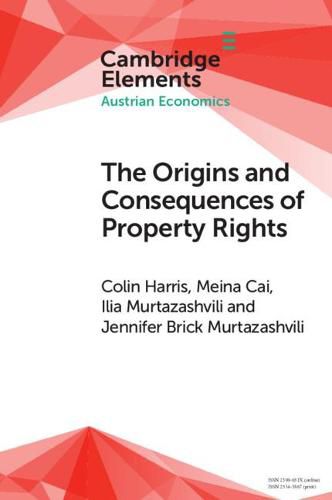Readings Newsletter
Become a Readings Member to make your shopping experience even easier.
Sign in or sign up for free!
You’re not far away from qualifying for FREE standard shipping within Australia
You’ve qualified for FREE standard shipping within Australia
The cart is loading…






Property rights are the rules governing ownership in society. This Element offers an analytical framework to understand the origins and consequences of property rights. It conceptualizes of the political economy of property rights as a concern with the follow questions: What explains the origins of economic and legal property rights? What are the consequences of different property rights institutions for wealth creation, conservation, and political order? Why do property institutions change? Why do legal reforms relating to property rights such as land redistribution and legal titling improve livelihoods in some contexts but not others? In analyzing property rights, the authors emphasize the complementarity of insights from a diversity of disciplinary perspectives, including Austrian economics, public choice, and institutional economics, including the Bloomington School of institutional analysis and political economy.
$9.00 standard shipping within Australia
FREE standard shipping within Australia for orders over $100.00
Express & International shipping calculated at checkout
Property rights are the rules governing ownership in society. This Element offers an analytical framework to understand the origins and consequences of property rights. It conceptualizes of the political economy of property rights as a concern with the follow questions: What explains the origins of economic and legal property rights? What are the consequences of different property rights institutions for wealth creation, conservation, and political order? Why do property institutions change? Why do legal reforms relating to property rights such as land redistribution and legal titling improve livelihoods in some contexts but not others? In analyzing property rights, the authors emphasize the complementarity of insights from a diversity of disciplinary perspectives, including Austrian economics, public choice, and institutional economics, including the Bloomington School of institutional analysis and political economy.